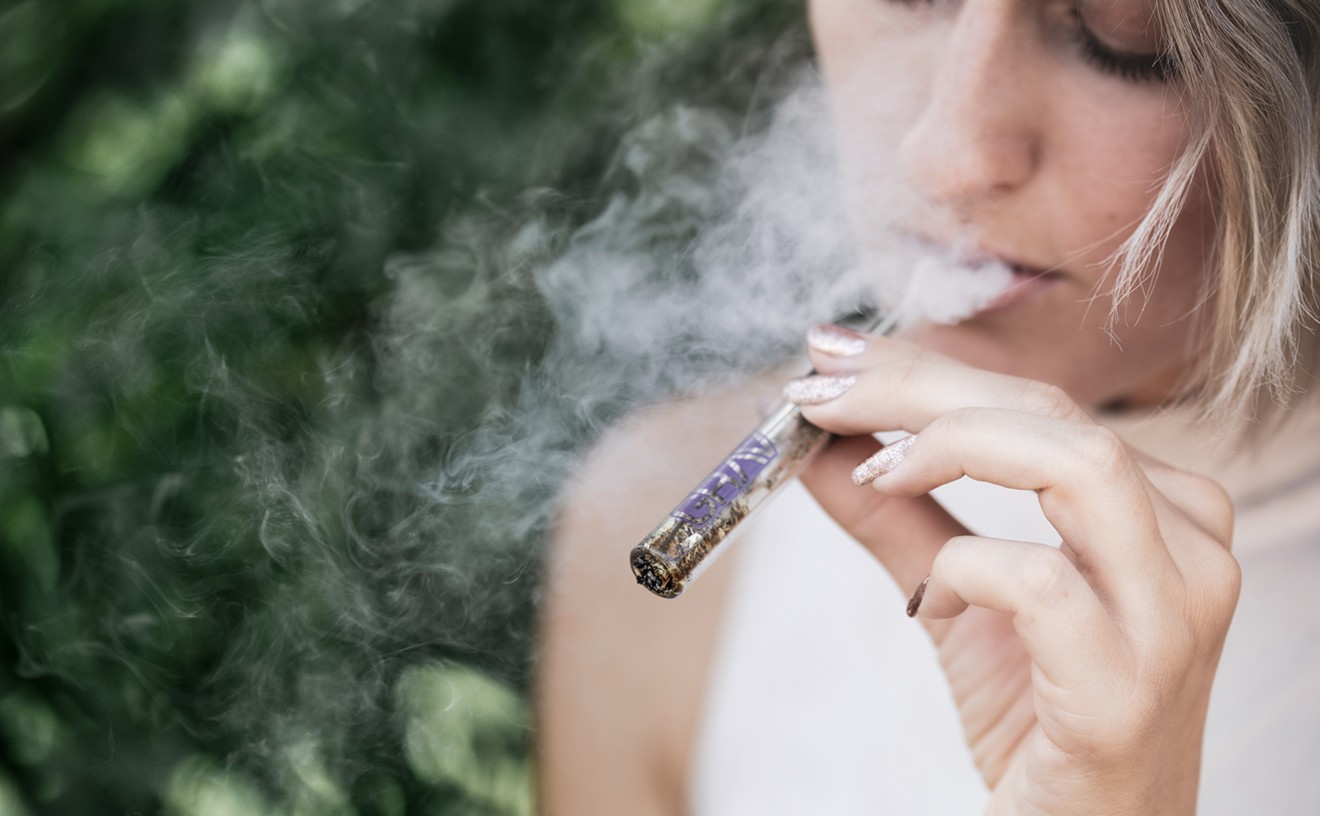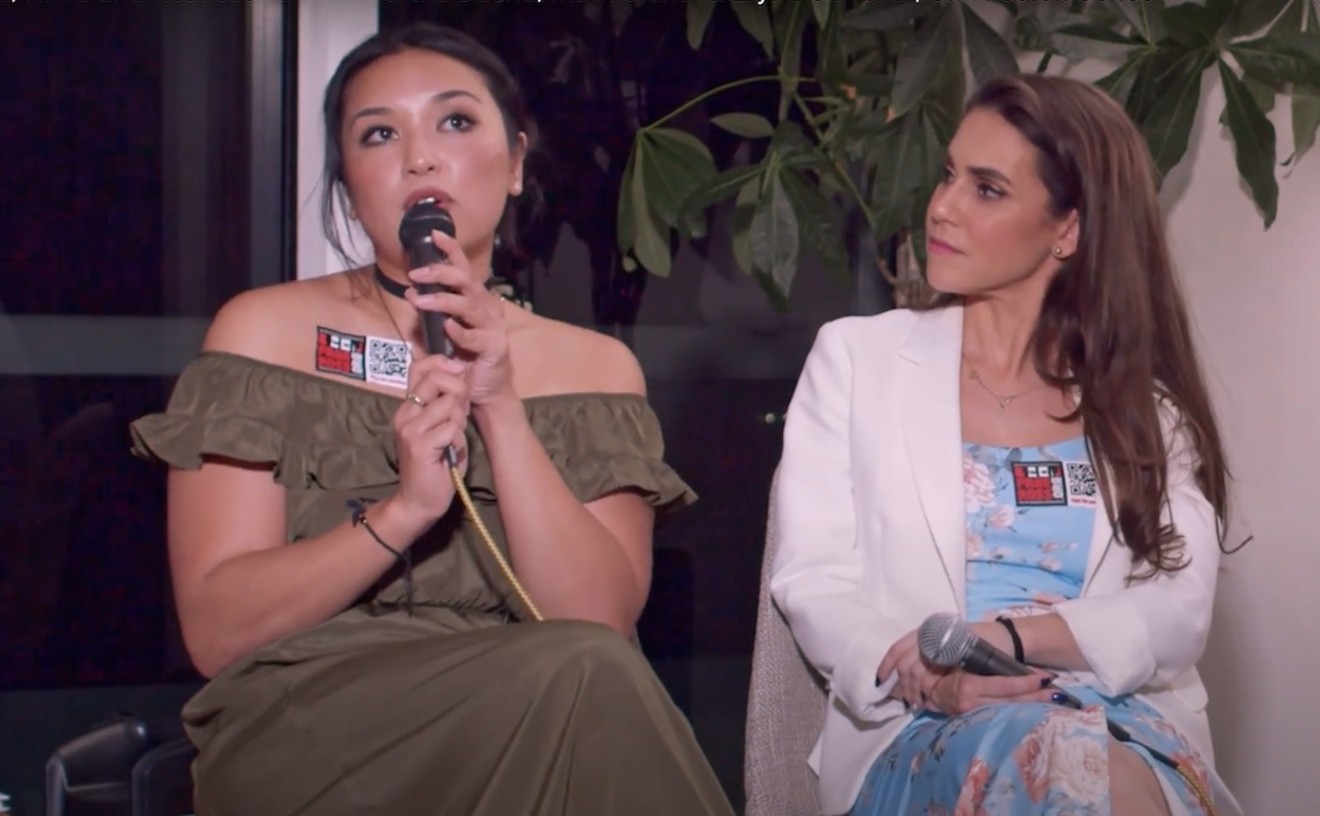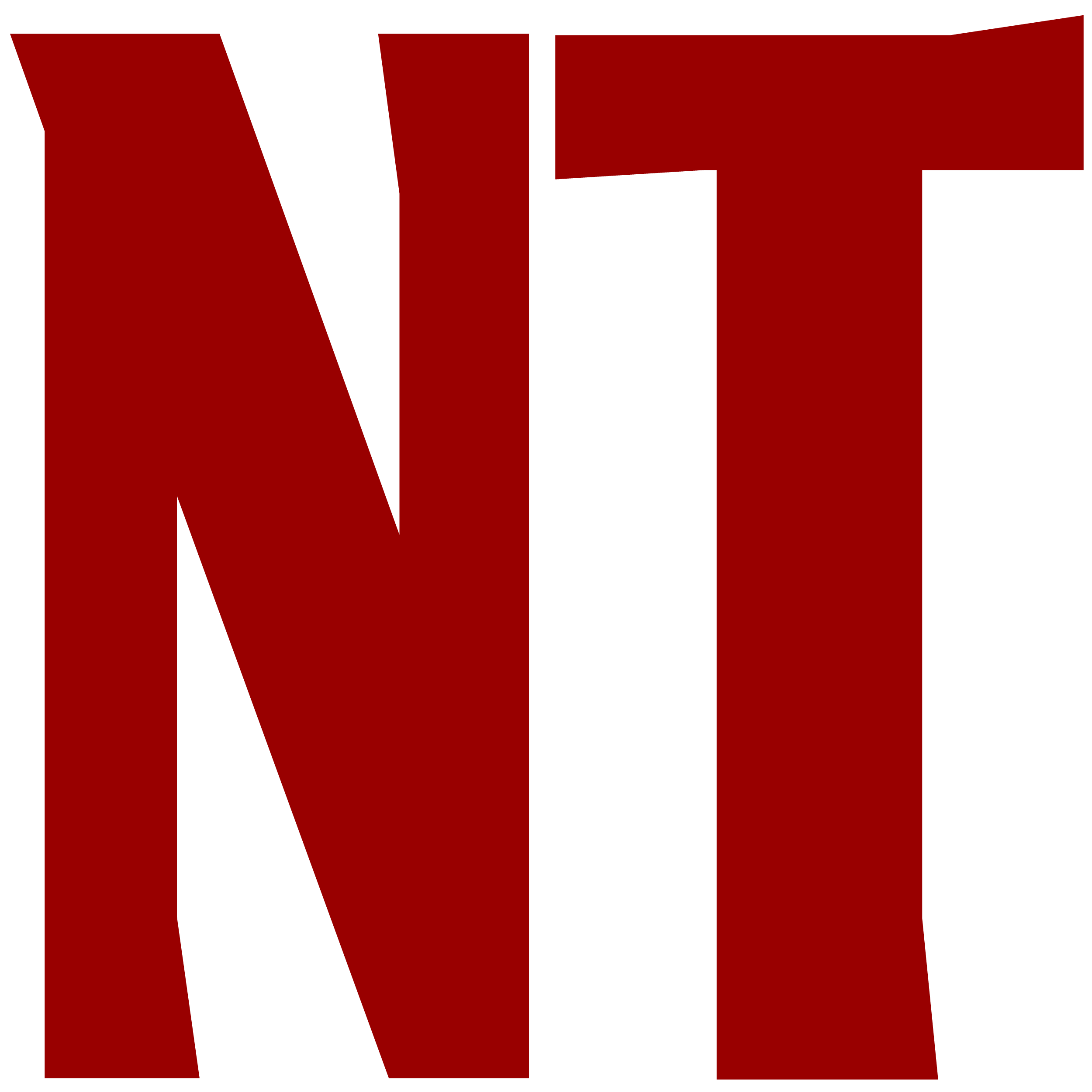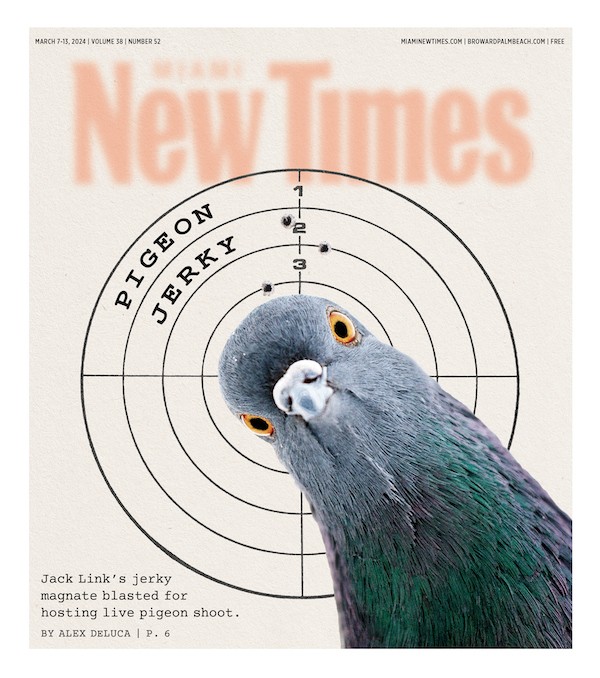Over the past year, a group bankrolled by Florida-based medical cannabis giant Trulieve has been steadily closing in on the number of signatures it needs to get weed legalization on Florida's 2024 general election ballot. The measure would bring to fruition years of legalization efforts from various organizations, allowing adults to possess up to three ounces of marijuana and five grams of cannabis concentrate.
But not if the state's top attorney gets her way.
On May 15, Florida Attorney General Ashley Moody — who is wed to a U.S. Drug Enforcement Administration special agent and has a long history of thwarting attempts to legalize the sticky icky — announced her plans to block the latest effort to legalize recreational marijuana, known as the Smart & Safe Florida initiative.
In a petition to the Florida Supreme Court, the longtime ally of Gov. Ron DeSantis says she believes the ballot language does not meet the "substantive and technical requirements" in Florida ballot law. Though Moody holds off on laying out her arguments against the measure, she cites a section of the law requiring that ballot summaries for public referenda be "clear and unambiguous."
"I believe that the proposed amendment fails to meet the requirements of Section 101.161(1), Fla. Stat., and will present additional argument through briefing at the appropriate time," reads the filing (attached at the end of this story).
For years, Florida cannabis-reform groups have tried — and failed — to legalize marijuana for recreational adult use in the state. One proposed ballot initiative by Regulate Florida died in 2019 owing to a lack of signatures; the Florida Supreme Court rejected two ballot proposals for vague or confusing language in 2021.
State law requires proposed ballot initiatives to rack up roughly 223,000 voter signatures to qualify for review by the Florida Supreme Court and about 891,000 to get on the ballot. In judicial reviews of initiatives, the court evaluates whether a measure satisfies clarity requirements and the single-subject rule, which ensures that an initiative is centered on one issue.
Earlier this year, the Smart & Safe ballot initiative officially made its way toward the state's highest court after garnering enough signatures for judicial review. According to the state's Division of Elections, the initiative has 786,000 signatures on file — meaning it needs approximately 105,000 more signatures to be logged in order to qualify for the ballot.
On May 10, Trulieve claimed that Smart & Safe Florida had surpassed that threshold in raw signatures.
The company, which has poured tens of millions of dollars into the initiative, estimates that Florida will become a $6 billion-a-year marijuana market if recreational weed is legalized.
Although critics have taken issue with the proposal's lack of a provision to allow Floridians to grow their own marijuana, proponents say that keeping the measure simple is the best strategy to move the ball on legalization in the state.
Cannabis law attorney Sally Kent Peebles previously told New Times that unlike past attempts, this initiative was crafted using straightforward, bare-bones language in order to avoid violating the single-subject and clarity rules.
"This time around they've got the benefit of seeing what the Supreme Court really had issues with," Kent Peebles said. "And so they made it incredibly simple."
In a recent statement to Politico, Smart & Safe Florida said it "respectfully disagrees" with Moody's stance and looks forward to arguments before the state's highest court.
A spokesperson for Trulieve didn't immediately respond to New Times' request for comment. The company is by far the largest medical marijuana operator in the state, with more than twice as many dispensaries as Curaleaf, its nearest competitor as measured by volume of flower sold.
Floridians legalized medical marijuana through a ballot initiative in November 2016, with 71 percent of voters supporting the measure, which far surpassed the 60 percent super-majority it needed to pass.
Marijuana
Buzzkill: Florida Attorney General Wants to Weed Out Pot Legalization Measure
Attorney General Ashley Moody has filed to prevent Trulieve-sponsored Smart & Safe Florida recreational cannabis initiative from reaching 2024 general election ballot.

A man takes a bongload of smoke as hundreds gather to celebrate 4/20 at Sunset Beach in Vancouver, Canada, in 2016.
Photo by Jeff Vinick/Getty Images
[
{
"name": "Editor Picks",
"component": "17482312",
"insertPoint": "4",
"requiredCountToDisplay": "1"
},{
"name": "Inline Links",
"component": "18711090",
"insertPoint": "8th",
"startingPoint": 8,
"requiredCountToDisplay": "7",
"maxInsertions": 25
},{
"name": "Air - MediumRectangle - Combo - Inline Content",
"component": "17482310",
"insertPoint": "8th",
"startingPoint": 8,
"requiredCountToDisplay": "7",
"maxInsertions": 25
},{
"name": "Inline Links",
"component": "18711090",
"insertPoint": "8th",
"startingPoint": 12,
"requiredCountToDisplay": "11",
"maxInsertions": 25
},{
"name": "Air - Leaderboard Tower - Combo - Inline Content",
"component": "17482313",
"insertPoint": "8th",
"startingPoint": 12,
"requiredCountToDisplay": "11",
"maxInsertions": 25
}
]








